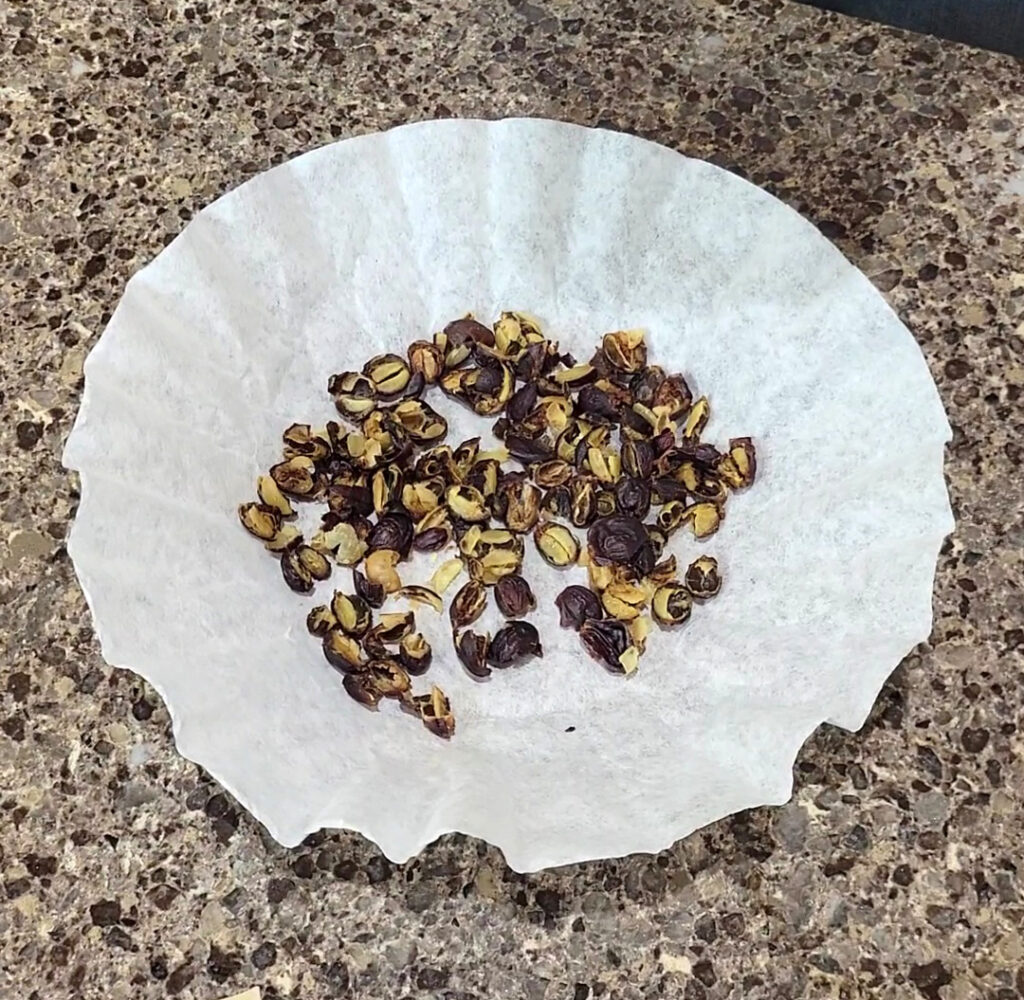Means “husk,” “peel,” or “skin” in Spanish, is the dried skins of coffee cherries. These skins are collected after the seeds have been removed from the cherries. They are then dried in the sun, and brewed as a tea, or packed and shipped for export to be used for other food applications.
Cascara is a Spanish word that means “husk” or “shell.” In the coffee industry, cascara refers to the dried outer layers of the coffee cherry, which surrounds the coffee beans inside. Cascara is a byproduct of the coffee production process. It is and either composted, or dried in the sun and brewed as a tea, or packed and shipped for export to be used for other food applications.

Recently, cascara has been gaining popularity as a beverage and has been used to make tea-like drinks. The beverage is made by steeping the dried cascara in hot water to extract the flavours and caffeine. It is known for its unique flavour profile, which can include notes of fruit, floral, and nut. The caffeine content is lower compared to coffee, but higher than tea.
Cascara is considered a sustainable product as it makes use of a byproduct of coffee production that would otherwise be discarded. The production of cascara also creates an additional income stream for farmers.
Cascara is gaining popularity in specialty coffee shops as an alternative to traditional tea and coffee. It can be brewed as a hot or cold drink and can be flavoured with various ingredients like honey, lemon or ginger to enhance its taste.
Do you have a term or definition you’d like us to add to the glossary? Let us know using this form.


